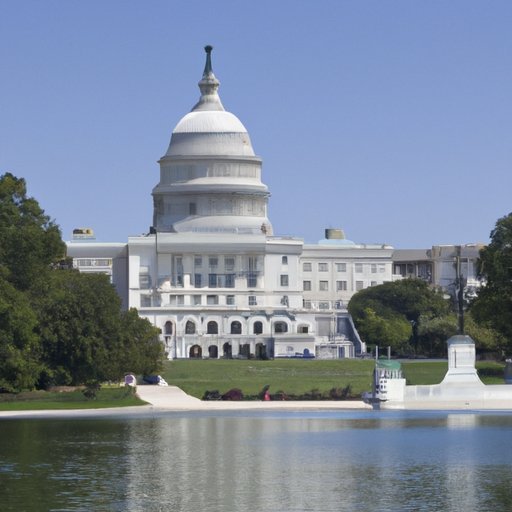Introduction
Are you one of the many people who wonders if District of Columbia (DC) is in a state or not? You might be surprised to learn that DC is, in fact, not a state! Its status as a federal district can confuse many Americans. In this article, we will explore the unique features of DC, the reasons behind its establishment, and why it is not part of any state. Furthermore, we will examine the effects of its non-statehood on its local government and daily life. Finally, we will discuss the current proposals for DC statehood, as well as examine its cultural and social significance.
What is DC?
District of Columbia is a federal district in the United States that serves as the capital of the country. It is not part of any state. It was created specifically to act as the seat of government at the time of the US Constitution’s adoption in 1787. Situated on the east coast of the US, DC has a population of over 700,000 residents.
With its unique status as the capital of the US, it is the hub of executive, legislative, and judicial branches of the government. The city also serves as a hub for international diplomacy, as numerous embassies are located within its boundaries.
Why was DC created without statehood?
After the adoption of the US Constitution in 1787, Congress needed a location for the federal government to operate from. The decision was made to create a new district that will serve as the nation’s capital. One reason behind this decision was to avoid any state from gaining an unfair advantage by having the capital within its boundaries.
Another reason was to create a direct federal presence, which will be responsible for the governance and security of the capital. At the time, the federal government was weak, and the idea was to have a federal presence in this manner to strengthen it.
Unique features of DC
DC is unique in many ways when compared to US states. One of the most notable differences is its representation in Congress; DC has no voting representation in either the House of Representatives or the Senate. Although residents of DC can vote for President, they have no say in who represents them in Congress.
Furthermore, the governance structure of the city is also different than most states, with a mayor and a city council carrying out local governance duties. However, the federal government retains significant control over the district’s budget, laws, and other vital aspects of its functioning.
The lack of statehood also creates unique taxation and funding structures for the city. With no state legislature to depend on, DC often relies on federal funds, which are also dependent on the whims of Congress.
Effects of non-statehood on local government and daily life
The lack of statehood can lead to uncertainties for the city’s local government. While they retain some autonomy in certain areas, they lack the same level of control that a state government would have, particularly over issues like taxation and budget allocation. Decisions regarding these matters often need to be run by the federal government for approval.
Furthermore, despite having a significant population, DC has no voting representation in Congress. This means that its residents lack a voice in the very government that makes decisions about their lives.
DC statehood proposals and debates
There are currently several proposals that call for DC to be granted statehood, with varying levels of support and complexity. Supporters argue that it is time for the district to have full representation in Congress and the ability to govern itself without federal interference. Opponents argue that DC’s unique status requires a special relationship with the federal government, and that granting it statehood could compromise the capital’s neutrality.
The issue remains highly debated, with many questions around the practicality and feasibility of statehood. However, the current mood in Congress is in favor of DC statehood, and it is possible that we may see changes in the district’s status soon.
Cultural and social significance of DC
As the capital of the United States, DC serves as a symbol of the country’s power and democracy around the world. It is also home to many historically significant landmarks, like the White House, the Smithsonian, and the National Mall.
Furthermore, DC has played an essential role in American pop culture, as the setting for countless movies, TV shows, and books. It is a city with rich culture and history, that has left an indelible mark on the American psyche.
Conclusion
District of Columbia is not in any state, but rather is a unique federal district that serves as the capital of the United States. Its lack of statehood creates unique and complex problems for its local government and its residents, which have been in the spotlight as of late due to the ongoing debate surrounding its potential statehood. Its cultural significance as the seat of power and democracy makes it a city with unmatched historical relevance.
In conclusion, while the status of DC as a federal district may be confusing for some, its unique and prominent position in both American history and global politics are undeniable.
